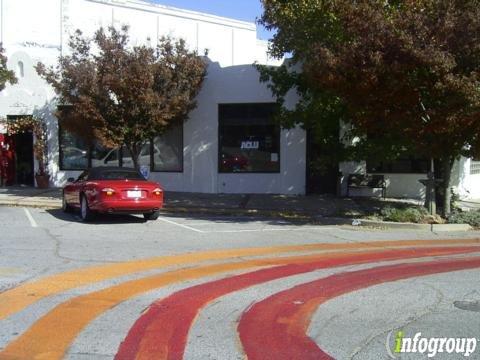Positively Paseo
Closed
Advertisement
400 NW 23rd St
Oklahoma City, OK 73103
The Historic Paseo Arts District, the core of which was built largely in 1929-1930, has served as Oklahoma City's artists' community for over four decades. Throughout its colorful past, Paseo has undergone several transformations. In the 1930's, the Elms Apartments were the place to view the art of the avant garde in Oklahoma City. In the 1950's, Paseo was a recreational and retail area that included the attraction "Paseo Plunge, " a community swimming pool that provided fun for many. The 1960's and 1970's brought the hippies, bohemians, artists, and visionaries to the area. Currently, the Paseo is enjoying a renaissance, as its galleries draw visitors, new restaurants invite customers, and its historic homes appeal to a broad range of people looking for an interesting and attractive urban neighborhood with character. The Paseo Arts District is in the near northwest quadrant of the city, at the northern edge of the city's Neighborhood Revitalization Strategy Area, and is central to Oklahoma City's most diverse neighborhoods. In the immediate area are several historic preservation districts, including Mesta Park, Edgemere Park, Jefferson Park, and Heritage Hills. Nearby, just northwest of the Paseo, is the successfully revitalized Western Avenue Business District. Immediately southwest is the city's Chinatown/Little Saigon neighborhood, known as the Asian District, as well as Oklahoma City University, an anchor for the near-northwest quadrant of the city. Balanced between these areas is the Paseo Historic District, bounded by N.W. 23rd Street, Western Avenue, N.W. 30th Street, and Walker Avenue. This area has many strengths to draw on, including its rich history, sense of identity, location, and historic homes. However, it has faced many challenges, including depopulation due to suburban flight, crime, absentee landlords, lack of investment in public infrastructure, and aging housing stock. The Paseo neighborhood is a key indicator of the overall health of Oklahoma City's urban neighborhoods, and as a highly visible one, it can influence the neighborhoods around it as well as the perceptions of residents throughout the city who come to visit its commercial district. Positively Paseo has been working for sixteen years to bring about the type of renaissance of the Paseo that is now being recognized. The organization's mission is to revitalize the Paseo into a safe, stable, historic neighborhood, with affordable high-quality housing for an economically and ethnically diverse market. Affordable home ownership is the cornerstone of effective revitalization of the area. In order to have the greatest impact on the Paseo neighborhood and to provide more opportunities for affordable home ownership to families and individuals of low-to-moderate income levels, in February 2007, the Positively Paseo Board of Directors approved expanding its service area. The expansion of the service area will serve two primary purposes. First, it will decrease overall project costs by broadening the pool of prospective acquisitions to include some lower-priced properties and by the absence of historic preservation guidelines for the new construction or exterior renovations. Second, it will help avoid a sharp contrast between the largely-revitalized Paseo and the challenged blocks immediately adjacent to it, which will benefit both neighborhoods. The service area for the organization now includes not only the Paseo Historic District, but also the two blocks north of it to Northwest 32nd Street. The approved extension expands Positively Paseo's service area borders to Northwest 32nd Street on the North, Northwest 23rd Street on the South, Western Avenue on the West, and Walker Avenue on the East. The service area, including the expanded area, is shown on the map below.
Also at this address
See a problem?
You might also like
Partial Data by Infogroup (c) 2025. All rights reserved.
Partial Data by Foursquare.
Advertisement








